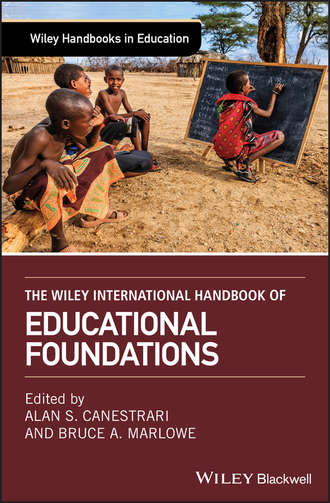
Полная версия
The Wiley International Handbook of Educational Foundations
Promotes a model of critique for teachers, scholars, and policy makers to challenge established educational practice in a global context. The Wiley International Handbook of Educational Foundations features international scholars uniquely qualified to examine issues specific to their regions of the world. The Handbook provides readers with an alternative to the traditional texts in the foundations of education by taking aim at the status quo, and by offering frameworks from which teachers and scholars of education can critically evaluate schools and schooling. Throughout, the essays are grounded in a broad historical context and the authors use an international lens to examine current controversies in order to provoke the kinds of discussion crucial for developing a critical stance. The Handbook is presented in six parts, each beginning with an Introduction to the subject. The sections featured are: Part I. Challenging Foundational Histories and Narratives of Achievement; Part II. Challenging Notions of Normalcy and Dominion; Part III. Challenging the Profession; Part IV. Challenging the Curriculum; Part V. Challenging the Idea of Schooling; and Part VI. Challenging Injustice, Inequity, and Enmity. The Wiley International Handbook of Educational Foundations offers unique insight into subjects such as: Educational reform in India, Pakistan, and China The global implications of equity-driven education Teacher education and inclusionary practices The Global Educational Reform Movement (G.E.R.M.) Education and the arts Maria Montessori and Loris Malaguzzi Legal education in authoritarian Syria The Wiley International Handbook of Educational Foundations is an important book for current and aspiring educators, scholars, and policy makers.

